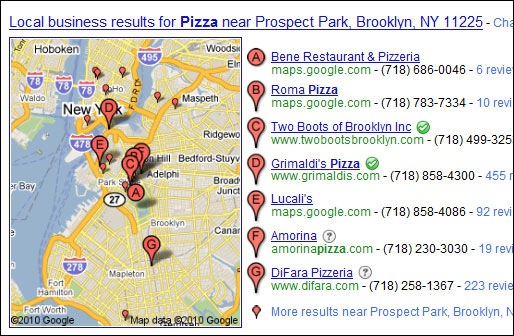I’ve touched on the topic of client expectations before, yet I can’t emphasize enough how important this subject is. So I’m devoting an entire article to it. If you think you’ve read all there is to read about this subject, move along. Nothing here to see.
However if you pause long enough and honestly ask yourself whether your initial reaction to this topic came from arrogance, you may be wise to at least read the article. If it turns out there’s nothing new here, then the few minutes it took to read will just confirm that you can count yourself among the rare few who have the client expectation thing licked. And if that’s the case, consider this article a tribute to your business savvy. 🙂
If, however, you’re like me, even if you’ve heard this all before, a good strong reminder like this will just help keep you on track, or get you to tighten up your act a little. Which will save you untold grief.
Whether you’re a consultant, an in-house specialist, or a manager at an agency, if you provide SEO services, a client or employer who hasn’t had their expectations managed properly from day one can be one of the most painful business relationships you’ll ever have. Your best bet for a successful experience is to etch this concept into your awareness so powerfully that it’s the first thing you think of when you begin every project…
Yesterday I created a neat little bar chart I refer to as “Eight Emotional Stages of an SEO Contract“. It provides a humorous take on the pain that arises even when client expectations are set from the beginning. Sure, if you do your job at managing those expectations, it will be a less frequent pain. Yet I can tell you now that even with the best footwork, the most comprehensive irrefutable facts, and thorough consistent communication, many clients / employers are still going to hold onto some unrealistic belief about the type or kind or speed of results they expect from the SEO process. And you’re going to say WTF? Repeatedly.
The Site Owner’s Mindset
If you yourself have never owned a business, it’s quite possible you’ve not yet thought about this enough to grasp the core factors that lead to unrealistic expectations. Or maybe you have previously been or are now, a business owner, but maybe you haven’t had any one of several situations come up in your own experience that would possibly lead to this being a problem. So let’s first dive into the site owner’s mindset so we can get a better understanding about why expectations, even when you THINK you’re managing them well, will often turn unrealistic.
Finances
Business owners face the never-ending challenge of ensuring enough money comes into the business to not only keep it running, but to hopefully even make a profit. Even the most altruistic business owner – one who gets into business in the first place for other reasons, on some level, worries about finances. Even the most spiritually fit business owner – the one who has an infinite well of faith in principles of abundance and manifestation, will, inevitably, worry at some point, about finances. Because even they are human. Living and operating in a world where cash flow is ever changing, where societal factors around them are out of their control.
And when a business owner is concerned about cash flow, they’re going to take steps to do what they can to increase that cash flow. Given how so much truth and hype and hyperbole exist in the media based on the notion that “traditional” or “old-school” marketing are being replaced by the Internet more and more, it should not be a surprise to any of us that a business owner who turns to the Internet for income generation is going to, at least to one degree or another, put their financial hopes on their web site.
The Committee of Yes, It’s Easy
The whole financial expectation issue is only magnified, sometimes exponentially, by those people who have the site owner’s ear, who themselves, have a vested interest in saying how easy SEO is. Or how magically SEO made the difference. Or how little it cost to do SEO. The list of people who fall in this category includes, but is not limited to:
In-House Marketers
The In-House Marketer is quite likely to have a subscription to any one or more of several marketing industry trade publications. It may be B To B Magazine or a membership in the American Marketing Association, or the local Chamber of Commerce, as just a few examples. And if they do, they’ve by now read countless articles or heard countless anecdotal stories of other companies that have found success online.
And since the in-house marketer’s job is to stay on top of trends, and to look for the most cost efficient method of promoting the company’s products or services, I guarantee you that most marketers who are in touch with trends, has come to accept that the web is where it’s at. And that Organic Search is the ticket. Maybe not all of them, but enough will.
And as soon as they suggest or insist on the company having a web presence (whether it’s a web site itself, or a site in combination with social media), or that SEO is the path to take, that marketer is going to go all out to prove to ownership that they too can succeed online. And that SEO will save the day. As if it’s inevitable.
Outside Marketing Agencies
While an outside marketing agency is similar to an in-house marketer in many ways, they have even more riding on their recommendations, because they’re an entire company themselves – and more people could lose their jobs if their recommendations turn out to be flawed. And even if they themselves have no clue about real SEO, they’re going to talk it up as if they did. Quite often putting nonsense into that site owner’s head. And if that outside agency doesn’t actually have real experience with SEO, they may well pretend they know enough about it to offer the notion that SEO is easy. Or shouldn’t be too expensive. For a whole host of different reasons.
Other Business Owners
Other Business Owners often have the attention of your client / employer simply by virtue of the networking concept. If they themselves just recently took the plunge into the web thing, they’re not actually able to say “yes, we’ve done it and it was a phenomenal success”. But they ARE likely to be very enthusiastic in their prognostication. Because if they aren’t, they themselves may have to admit that they gambled on this Internet thing. Which would scare them no end. So instead, they puff themselves up with confidence. And by helping your client / employer to also take the plunge, they get one more ally in the quest to find others who made similar decisions. Which psychologically helps them not have to consider the worst case scenario.
Or worse, they say “we had SEO done on our site and it only cost X” or “We did it ourselves – it was easy”. Even though it could be a business in a completely different market with totally unrelated issues or competition. Which they and your client / employer won’t know or think to discuss as a flaw in that being an influencing factor.
Finances + The Committee Of Yes, It’s Easy = Ut Oh
When you combine financial hopes / fears with the potentially shaky motives of others, or the opinions of others even though those opinions are based on factors that don’t really apply to this situation, you end up with a site owner who may very well be overly confident or have unrealistic expectations when it comes to how well this whole SEO thing is going to pan out in terms of speed and volume.
The Already Doomed Company
Sometimes a company is already on the fast track to collapse, only to turn to the web site as a last ditch, seemingly low cost way to save the day. I have seen it over and over again through the years. Given how relatively inexpensive it is to get that site built, or to market that site with SEO, some business owners actually convince themselves that this SEO thing HAS to work. And fast.
Even if the site itself all but guarantees poor conversion capabilities. Or the product is the wrong product in today’s economy. Or the pricing of their offerings is too high. Or the content does a lousy job at communicating that company’s value.
The Dreamer
I’ve had a number of clients who have come to me over the years with “an idea”. “I have an idea for this site. It’s going to be killer. It’s a new approach to things and the competition is going to be toast!” Except in reality, most of those people have chosen to get into a market that is so super-saturated with such well established competition that it’s more like business suicide to get into the field. Or it’s going to cost ten times as much as they realize. Or take two years of consistent effort.
The Sea of All The Rest…
All the rest includes the usual suspects – email spam, fly-by articles, coverage of the rare truly miraculous success stories, anecdotal tales from relatives and friends… Which exist in such quantities that they form a sea of “it’s easy – it’s a sure thing – it’s an overnight process…” And that sea is so vast that it’s everywhere a typical site owner looks or goes these days.
__________________________________________________
Setting Expectations
Given all of these people and notions and myths and fairy tales bombarding your client / employer, it’s critical that you pull out all the stops when setting expectations. I’ve given a few suggestions in this regard in both my first Anatomy of an SEO Audit article and the second part of that series as well. Essentially, it boils down to a few things, presented repeatedly throughout the project life cycle.
Wake Up Suzy, Wake Up!
Have you ever had a client that seemed to be so out of touch with reality that you just wanted to shake them awake? Well, it’s our responsibility as the SEO consultant / specialist, to do just that. To wake the client / employer up to the reality of just how challenging this whole SEO thing really is. Before you can do that, you yourself may need to be shaken into reality in terms of how monumental it is for a web site to actually end up on the first page of Google.

Here’s the concept. You own a Pizza place in Brooklyn. Right next to Prospect Park. It’s the heart of Brooklyn. And you want to get your pizza place onto the first page of Google. Well if that’s the case, you better be aware of how challenging that is. Because look at all the pizza places there are within a five mile radius of Prospect Park.
See all those dots. They’re pizza places. Okay so no big deal. I can just click on the map, zoom into my neighborhood and pick the pizza place closest to me, right?
Well sure, if you’re looking for Pizza using Google Maps, sure. Go for it. Easy.
Except it’s not so easy.
When you look at the Google organic results page. Which is where most people go. Because they don’t think to go to the Maps first. Since Google’s so nice that they put a map on the organic results page now.
To accommodate lazy people.
And then what happens?

You get competition that’s not in your neighborhood right next to the park anymore.
You get some pizza place all the way by the bridge. Which is not in your neighborhood. But since it’s right there to choose from, maybe you decide “hey – they’re within a couple miles of the park. Maybe I’ll try them tonight”.
And that’s the problem. The competition is no longer what most business owners used to think the competition was. It’s much broader now. And this example is just a tiny example.
If you’re in Manhattan, here’s what the competition looks like for Pizza.

And the fact is that not every one of those little red dots can be on the first page of results.
_______________________________________
Of course, you’re free to choose whatever other kind of analogy you wish. I’ve used this purely for illustrative purposes. To show that the first page of results is very tiny when you consider the real competition for most site owners. The important concept being that you need to wake your client / employer up in terms of what they’re up against.
It Gets Worse
Don’t forget to explain that it’s worse than that. Given how many keyword phrases there are to consider for that particular business.
Original Brooklyn Pizza
Brooklyn Style Pizza
Pizza by the slice
Thin Crust Pizza
Deep Dish Pizza
Sicilian Pizza
Calzones
Italian Food
Italian Restaurant
Pizzeria
Pizza Parlor
How many of those phrases, and how many others, do you need to consider when deciding what you’re going to list the pizza place under? Which are the ones that are most important right? And how much effort will it take to get listed for the ones chosen? So the whole keyword selection thing has it’s own monumental expectation management angle.
Localization Nightmares
And do you optimize the site for “Brooklyn Pizza” or “Prospect Park Pizza” or “Prospect Park Pizzeria” or “Prospect Heights Pizza Parlor”, or “Pizza Place next to Prospect Park West”? Given the 5 mile radius potential. Not to mention that someone who lives in Brooklyn but uses an ISP with a facility in Manhattan is going to initially get the WRONG auto-detected Google Location identifier…
And of course there’s the little problem we like to refer to as “200 factors” that we need to consider and choose to address or not. And oh yeah – that minor issue where Google changes their algorithm how often? 100 times a year. ONE HUNDRED.
And for all the talk in the SEO community about inbound links – exactly how many inbound links is a Pizza place going to get? Really? I mean high quality, relevant inbound links?
And how many directories are you going to submit the site to? Or expect someone else to? 5? 15? 50? Better have a plan, and better manage client expectations on that aspect as well…
Blowing Off Income Opportunities
And now, with the whole Yahoo thing, Bing is becoming more significant a factor. Unless you tell your client that there’s a LEGITIMATE reason to not bother with Bing. Which you’re free to do. As long as YOU understand that someone may come along and tell them that Bing actually gets 5 or 10 or 15% of all search activity. Which means that by telling your client not to worry about Bing that they could be missing out on 5, 10 or even 15% of their potential business income. Or maybe you’re a gambling sort. And figure that whatever you do for Google will guarantee that SOME of that will work for Bing, and thus you don’t need to BOTHER.
Which is okay, as long as you’re prepared to explain how you came up with THAT attitude. When their business is hanging in the balance. And one of those people on the committee of YES tells them that Bing matters.
Let’s Not Forget
Let’s not forget that PPC and Social Media have their own considerations. Even if the client doesn’t ask for them – you need to think about at least covering your rear by discussing these concepts from the beginning – and figuring out how to manage the clients expectations down the road when THEY come to YOU and ask, if you failed to do so early on…
____________________________________________________
Boiling It Down
So expectations are a potential land mine of outside influences that you may or may not be aware of. Even if you think you did a great job in your initial conversation with the client / employer. At any point during the life cycle they may drop a bomb on you based on their own thinking, the own fears, their own previously not revealed expectations. Or those of someone on the committee of Yes. Or from anywhere in left field.
So be prepared. And at every step of the way, control expectations. Be proactive. Be intensely serious. Be crystal clear. And when all else fails, be ready to pull out that original SEO Site Audit and Action plan you did where you detail all those original caveats and disclaimers. You know – the ones I already told you about in my Anatomy of an SEO Site Audit series.
Bailing Out On The Audit
Okay so I readily admit that countless times over the years I bailed out on doing an actual comprehensive SEO Site Audit. Because I figured – this is a low budget client, and it’s a cake-walk.
Only to regret having done that. both because (as I describe in my audit series) failing to do a proper audit and failing to charge properly for it, clients have an easy way to disrespect your work, and without that initial audit/action plan, I had a lot more explaining to do along the way, and had much more difficulty managing client expectations.
So please – learn from my pain. I beg you.
Don’t Blow Me Off
One last concept. I can’t tell you how many times I’ve communicated things as part of my client expectation management process only to have a client blow me off. Even when I was quite serious. It’s like they will sometimes go to any lengths to immediately take what I’ve said and make it disintegrate into thin air. It’s pretty obvious when they do. The warning signs are really obvious for anyone with any experience with interpersonal communications.
Or it may not be. Maybe I’m able to pick up on it because decades ago I had professional training and experience with that while I was in the Military Police. And we were taught how to read people’s attitudes. Or maybe it’s because I’m empathic. Which I am.
But in any case, you need to learn how to tell when someone’s blowing you off. If for no other reason or situation than in client expectation management.
Because when that happens, you need to stop them dead in their tracks.
Right there.
Right then.
And find a way to get them to acknowledge your warnings.
Because if you don’t, well, you’ll just come crying to me with your war story.
And I’ll listen, shake my head and thank God that it was YOU having to pay the price this time, and not me.
Because as much as I care about you, I also appreciate every opportunity I get to laugh. At others. Who didn’t listen to me. When I warned them in advance.
Not because I don’t have compassion.
But because I have to be able to laugh at others. Given how I laugh at my own failures in business all the time.
And if I’m going to be willing to laugh at my own failures in business, I guarantee that I’ll laugh at yours as well.
Because if I don’t, I’ll just cry.



